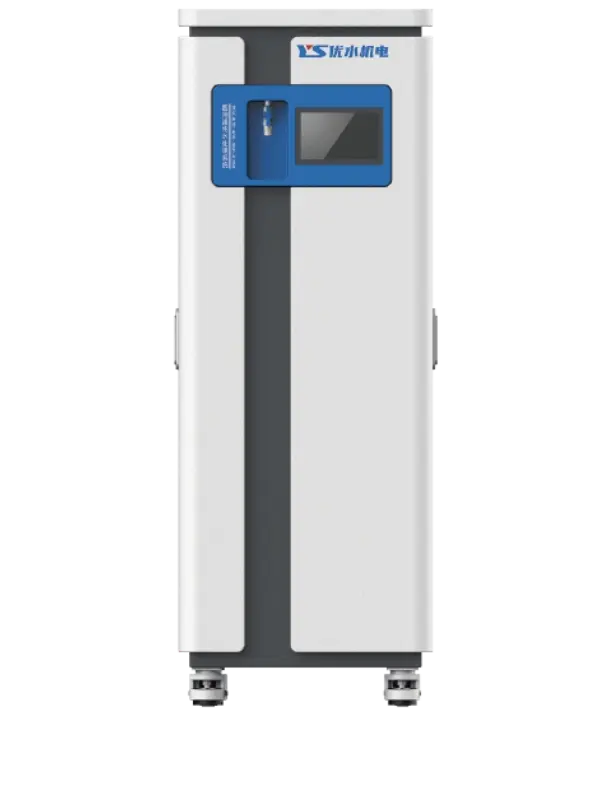Category 1 H2O Systems of Water: Guaranteeing Standards and Accessibility

In today's cutting-edge scientific contexts, the demand for pure liquid is essential. Type 1 water systems are at the cutting edge of this necessity, providing laboratories with highly purified water vital for a wide range of scientific studies and uses. https://www.ahyouspurewater.com/category/products/clinical-laboratory-ultra-pure-water-equipment/ ensure that the H2O used is void of impurities that could undermine experimental results or product quality. As we examine the value of Type 1 lab water systems, we will discover how they contribute greatly to the reliability of scientific work and progress.
The pursuit of Category 1 laboratory premium liquid goes beyond just accessibility; it is a paramount need in fields such as life sciences, chemical research, and pharmaceuticals. By providing Category 1 highly purified water, these systems help maintain strict criteria that guarantee the precision and trustworthiness of experimental data. Understanding the attributes and benefits of Type 1 premium water solutions allows laboratory personnel and research facilities to make educated decisions, confirming that they have access to the highest quality H2O for their important research.
Overview of Type 1 Water Systems of Water
Type I water systems are essential in laboratory environments where the utmost level of water purity is necessary. These water systems are constructed to produce ultrapure water that fulfills rigorous standards for electric conductivity, total organic carbon, and particulate matter. Labs that conduct delicate tests and studies, such as those in molecular bio, microbiology, and chemistry analysis, rely on Type One lab water systems to ensure the reliability and validity of their results.
The technology behind Type 1 laboratory highest purity water involves various cleansing processes including RO, deionization, and filtering. These methods work in unison to get rid of impurities and contaminants that could disturb with research results. The result is water that is not only devoid of minerals but also has reduced levels of organic and inorganic pollutants, making it appropriate for even the most demanding applications.
Accessibility to Type I ultra-pure water systems is essential for ensuring productivity in research and progress. By supplying a continuous source of highest purity water, these installations enable laboratories to simplify their workflows and reduce interruptions associated with water quality issues. The critical nature of having consistent and available Type One water systems cannot be underrated, as they play a key role in promoting scientific innovation and quality assurance in various fields.
Importance of Ultra Pure Water Quality
The purity of water utilized in laboratories is crucial, especially for studies and procedures that require a significant degree of reliability. Type 1 laboratory ultra pure water is necessary for various applications, including analytical chemistry, molecular biology, and pharmaceuticals. The presence of impurities, even in trace amounts, can profoundly affect experimental outcomes and the validity of results. Therefore, employing Type 1 ultrapure water systems ensures that researchers have the highest quality water that meets strict purity standards.
In moreover to upholding experimental integrity, ultra pure water plays a critical role in the maintenance of laboratory equipment. Contaminants in water can lead to scaling, corrosion, and different kinds of damage to sensitive instruments. By utilizing Type 1 water systems, laboratories can lessen the challenges associated with equipment maintenance, extending the duration of investments and ensuring that results are not compromised by equipment failure.
Additionally, the accessibility of ultra pure water is essential for laboratory efficiency. Having a reliable source of Type 1 laboratory water systems allows researchers to perform experiments without the setbacks associated with water purification processes. This prompt availability enables labs to function smoothly, improves productivity, and allows scientists to focus on their research without the concern of water quality influencing their work.
Guaranteeing Accessibility in Laboratory Settings
Ease of access in lab environments is vital for ensuring that all researchers and personnel can properly use Type 1 lab water systems. These systems provide highly purified water critical for various tests and operations. To promote accessibility, laboratories should prioritize the implementation of user-friendly water purification systems that are easy to operate. Comprehensive training and resources should be available to all employees, irrespective of their past experience, to make certain they can efficiently access and utilize the Type I laboratory ultra pure water.
Additionally, adding intuitive technology with Type I ultrapure water systems can considerably enhance accessibility. Features such as automated dispensing and real-time monitoring of water quality can aid scientists in obtaining the specific water they demand for their uses. Making sure that these systems are located effectively throughout the lab can cut delays and streamline workflow, facilitating for users to get the required resources without unwanted interruptions.

Finally, laboratories must consider the different needs of their staff. This means addressing physical accessibility for individuals with disabilities and guaranteeing that the systems are within reach for all users. By creating an accessible environment and prioritizing the accessibility of Type 1 water systems, laboratories can improve overall efficiency and raise the quality of studies conducted within their facilities.
